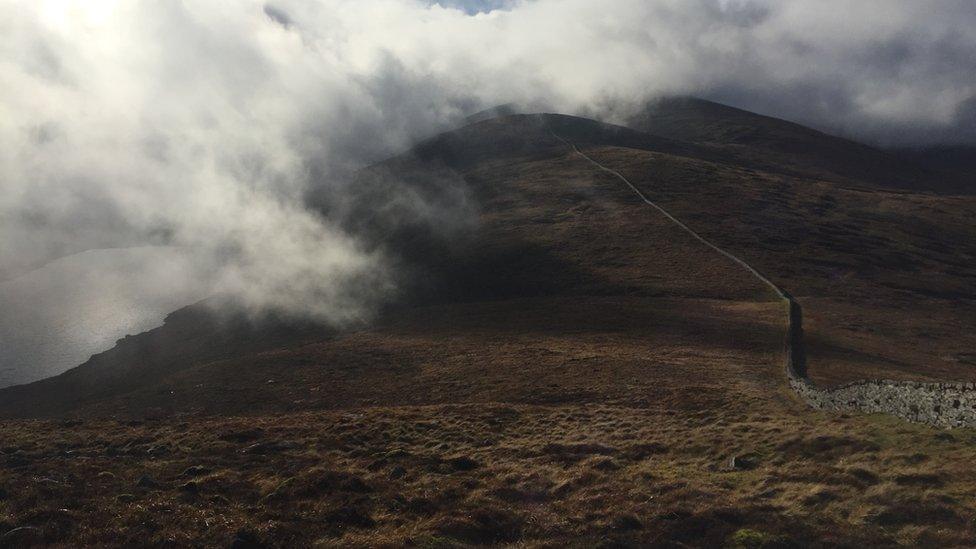Extinction risk for 270 species in Ireland, says nature report
- Published
- comments
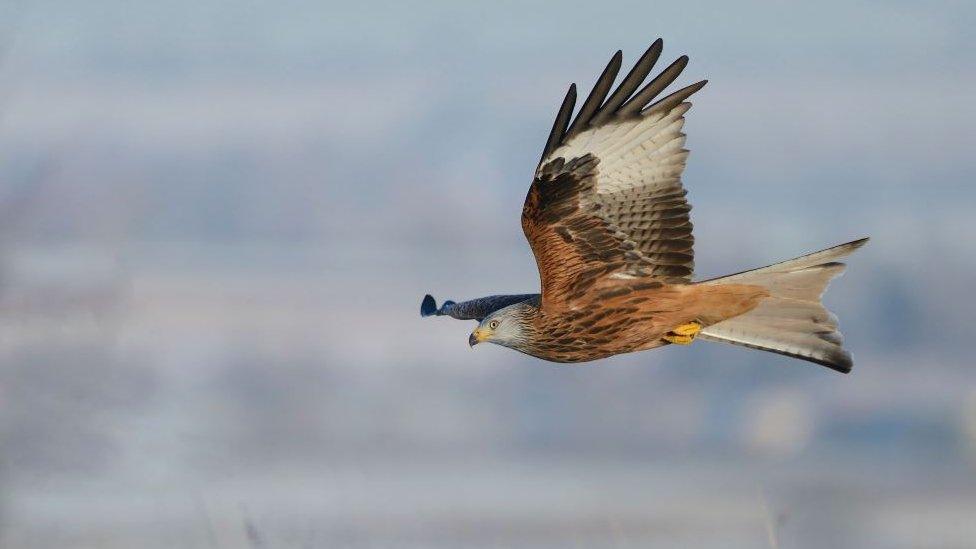
The red kite is under threat in Northern Ireland
Almost 300 wildlife species are threatened with extinction on the island of Ireland, according to a new report on biodiversity.
The State of Nature report, external covers the whole of the UK and says that 41% of species have declined since 1970.
In Northern Ireland, nine species of butterfly show a marked decline and the future of breeding waders like curlew is "uncertain".
The findings make for sombre reading, according to one nature charity.
The report is published every three years and government agencies have joined wildlife organisations for the first time to help provide the clearest picture so far.
Of 2,450 species of conservation concern, 272 are threatened with extinction on the island of Ireland.
They include 140 plants, 11 vertebrates and 121 invertebrates, including species like the small blue butterfly, the cuckoo bumblebee and spiny dogfish.
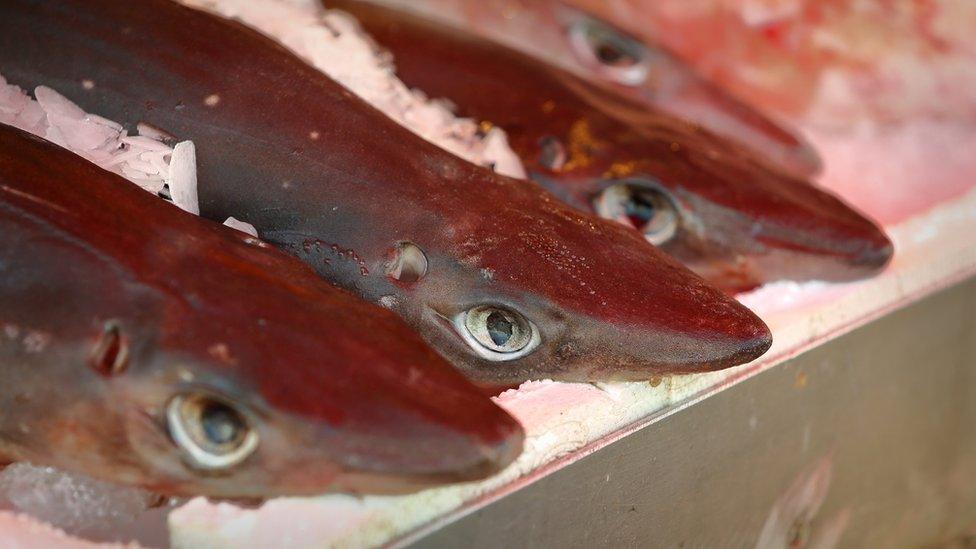
Spiny dogfish are among the 272 species at risk of extinction
While there is good news for some breeding birds - with 41 species up two-thirds since 1994 - the majority are common birds that are not at risk.
While the report makes for sombre reading, there are examples of how things could be turned around if there was a greater effort on a bigger scale, said the Royal Society for the Protection of Birds (RSPB).
The RSPB's Anne-Marie McDevitt said the recently-announced consultation on an environment strategy for Northern Ireland could be the vehicle for that and urged people to respond.
"This strategy needs to be ambitious, have clear milestones and targets, be set in legislation and be properly funded," said Ms McDevitt, the charity's Northern Ireland head of species.
The report shows that while parts of Northern Ireland are covered by conservation areas many are not meeting their targets for supporting the species they contain, but some work is going on to address that.
The main threats to biodiversity across the UK are changes in farming methods and the impact of climate change, which affects species abundance, distribution and habitat.
Pollution also remains a significant problem.
The RSPB said there was greater awareness about the impact of climate change and the need for long-term solutions.
- Published18 September 2019
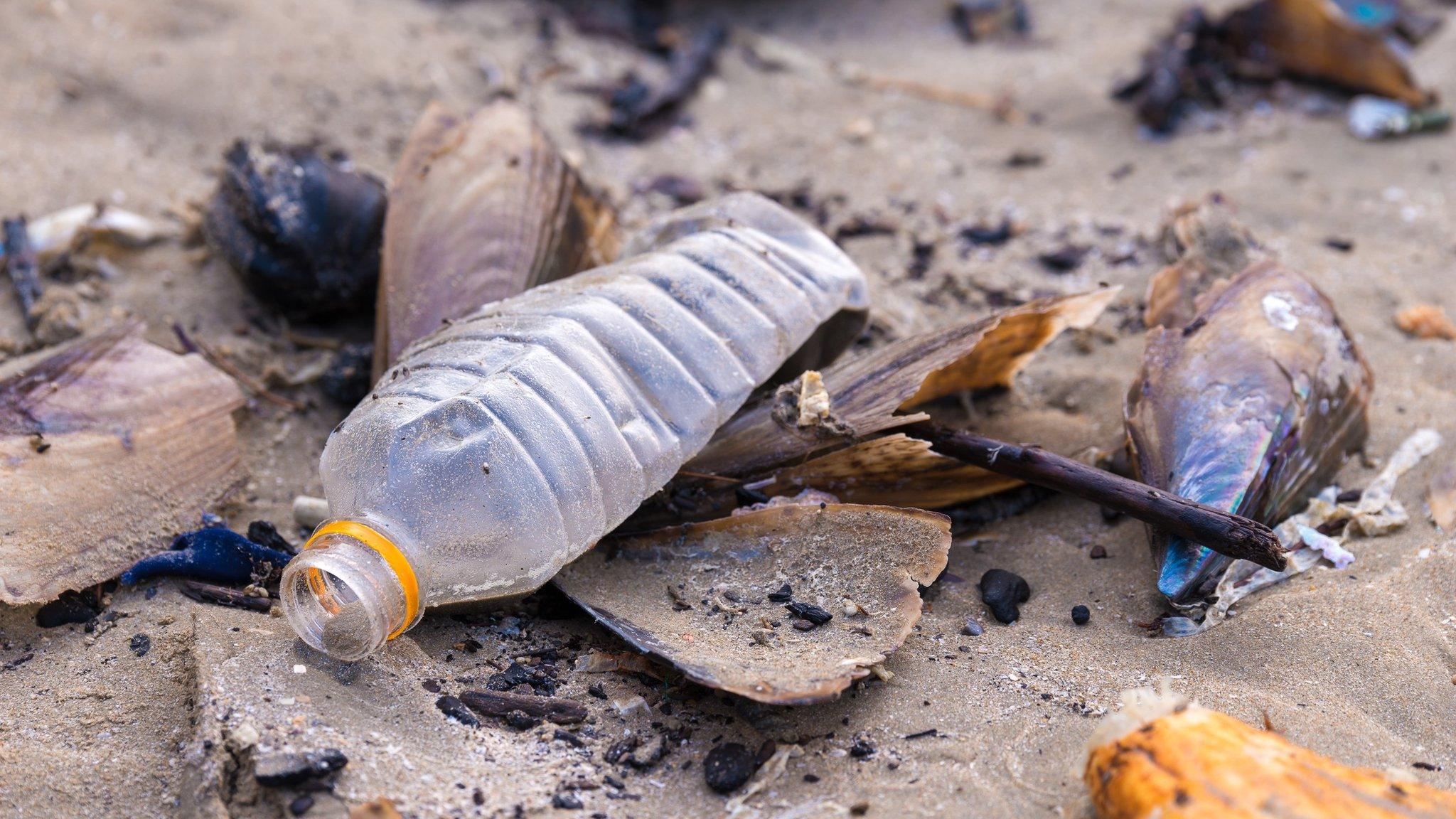
- Published27 April 2019
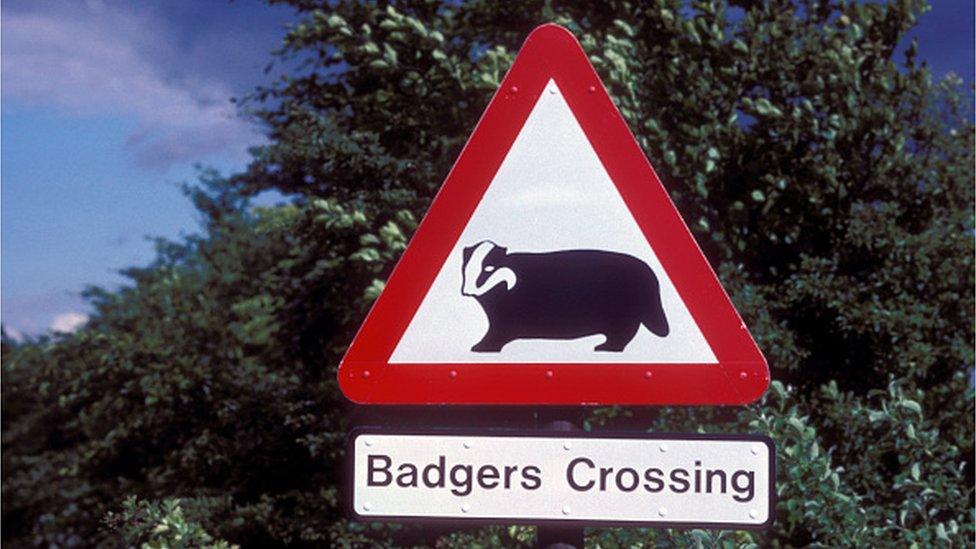
- Published16 April 2019
